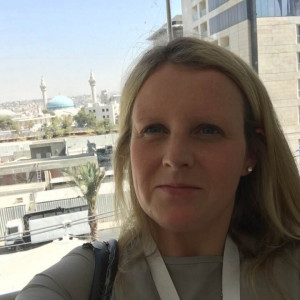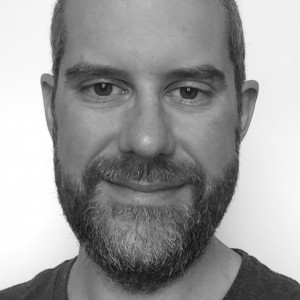How do you stay on task?
Interview with Ascencia, a content marketer, and avid gig economy professional
I'm a creature of habit. Once I discovered the rhythm that works for me, it's easy just to do the work. Most of my work is routine too (content production), so that helps.
I get bored with something pretty fast, but I'm not too good with changes either. So being a freelancer in the content marketing space works for me, since content production is a routine work, but different with each client. There are rarely 'surprises.'
Usually, at the beginning of the week, I already know what I will be doing during that week. Sometimes if there's too much, I'll make a to-do list, and tackle the tasks one by one as I go through it.
I already have an estimate of the time each task will take, schedule them into my week. By doing this, I can do the actual work mindfully, without thinking about the other tasks.
A forgotten two-year-old Upwork account allowed Ascencia to become a content marketer—see how the gig economy has offered her an alternative path to success.
Read full interview from Interview with Ascencia, a content marketer, and avid gig economy professional.
Interview with Jake, a customer success manager for Atlassian
I identify daily tasks and do my best to get them done. Sometimes they get pushed back a day or two, but I always try to be realistic with my goals, or else I just get discouraged, and when I get discouraged, I procrastinate... and then things really get behind.
Jake was burned out on the San Francisco lifestyle—see how he transitioned from working in-office to working remotely for a remote-friendly company.
Read full interview from Interview with Jake, a customer success manager for Atlassian.
Interview with Artur, an engineer who found purpose as an Intrapreneur
Procrastination is my mind's natural response to the lack of clarity.
My attention starts to waver when I am not sure what to do next, so the easiest decision is watching the next cat video.
After I consciously internalized this, I know that I have to keep in mind the WHY. I need to be specific about the purpose of the task that I am currently performing. Knowing what success looks like and what it will mean for the end user helps me tremendously.
That being said, I am addicted to Facebook. I barely spend time there, but I still have muscle reflex of opening a tab and typing the social networks address.
I am angry at myself a few seconds after it loads, but I don't seem to be able to shun the habit. My latest attempt to battle this is blocking the facebook domain entirely on my laptop. I have deleted the mobile app more than a year ago.
Sometimes I still procrastinate, so I always keep one to two projects on the back burner. If I really can't focus on my main task, I use another project to procrastinate and switch contexts to refresh my mind.
Artur realized entrepreneurship wasn't for him—see how he carves out his creativity and purpose as a remote Intrapreneur at Automattic.
Read full interview from Interview with Artur, an engineer who found purpose as an Intrapreneur.
Interview with Meryl, a digital marketer and master of home office organization
Staying on task has always come naturally to me. On the rare occasion when I can't focus or stay on task, I switch to menial things.
Meryl K. Evans is skilled at creating a home office that leads to remote work flexibility. See her advice for creating a successful workspace, and hear about her journey into freelancing.
Read full interview from Interview with Meryl, a digital marketer and master of home office organization.
Interview with Maggie, a senior product manager at HubSpot
I'm a big fan of the old fashioned list. I usually write one each morning.
There isn't a magic formula to my lists - I write out everything I need to do in the day and try to check things off in order of urgency and priority.
It's important to stay focused on the things that really matter in order to achieve my core goals, and try to eliminate the noise.
I've also learned the hard way as a product manager to distribute work, and not try to do it all. That allows the entire team to grow and accomplish things together, but also make mistakes and learn together.
Remote work allows Maggie to live in a small town and excel in her career. Hear about how she stays professionally connected, and her essential career advice for remote workers.
Read full interview from Interview with Maggie, a senior product manager at HubSpot.
Interview with Nathan and Connor, owners of Freeeup
We both have our own ways of staying organized and keeping the ship moving forward. Given that most of Nate’s time is spent on interviews, recordings, and phone calls, Google Calendar serves as his main tool for keeping his day on task and moving forward.
On my end, I spend more time working on different growth projects within the business.
I plan out my day the night before to make sure that I allocate enough time to each project that I’m working on. I then follow that game plan each day while allowing for some adjustments when needed.
Thinking of creating your own remote startup? See how Nathan and Connor built a successful and effective remote team from scratch.
Read full interview from Interview with Nathan and Connor, owners of Freeeup.
Interview with Ben, a web developer who freelances from home
Sleep. #1 most important, everyone says it and it's true. I have issues from time to time getting a good sleep (loud neighbors, too hot at night, cat walked on my face at 5AM because she wants food), and when my sleep is garbage, my billable hours tank for the day. Exercise helps as well, but even for that, you need to have had sleep.
The biggest things are to close Steam, pull up work, and just try to stay on task. I find if I can't stay focused (when I catch myself starting to browse news sites for more than 2 minutes), that's usually the time to stop the clock and walk around the house or grab a snack or something.
Try to force it a little, but don't try to force it.
After doing this for over a decade, I have a good sense for when I'm going to need a break.
It helps to always have something in your queue to focus on. If you can't work on the project, then answering emails for a few minutes might be just what you need.
Caffeine is something I avoid, because that tends to become a habit quickly, and loses effectiveness. It's great for the occasional day you have to work, but can't focus, but I try to avoid at all costs using that too often.
Have things to fiddle with. I know fidget spinners were a silly trend mostly, but I have a half a dozen every day objects that I idly play with while I work sometimes, and that's usually enough to burn off whatever makes me want to not work.
Try hard to enforce a specific set of "work" hours. It's a lot easier to be in a routine of "work time", because you find yourself poking your own brain when you're not. If you keep at that long enough, it starts to feel a little odd when you slack off, which helps me get back on task.
Learn the tips and tricks Ben uses to stay productive while working remotely on a hybrid team
Read full interview from Interview with Ben, a web developer who freelances from home.
Interview with Harry, an IT Architect who works from home
I keep a lot of notes in different locations for different reasons. I use Apple's Notes app for keeping them long term - basically my archive. For short term notes - those I'll collect on a conference call or working on a specific task, I'll keep them in a Text Wrangler document. I usually have quite a few of these open at once.
I use a Trello board for each major project. This makes it easy to share out tasks that require input from other IT or marketing team members, and also allows them to see how I'm progressing through development.
I use Todoist for managing the individual tasks for each portion of a project. Checking off each individual item gives me a sense of accomplishment and motivates me to complete the next on the list.
Harry has worked remotely for almost 10 years as a senior mobile, web and desktop developer—learn how he balances work with family.
Read full interview from Interview with Harry, an IT Architect who works from home.
Interview with Chanell, a freelance writer and social media manager
This one may sound a little offbeat, but finding a good music live stream on YouTube always helps me keep productivity high.
I have noticed that I write a lot faster and sharper when I am listening to music. It helps me to focus and concentrate more on the content rather than working quietly or with the television on.
I also like to keep a real agenda to keep track of my work for the week. I have noticed that I do a lot better when I can write down my to-do list and check things off. Not only does it give me a sense of accomplishment, but I immediately know what needs to be done first.
I also make a point not to check email until I complete the assignment. If I do not do this, it is easy for me to become side-tracked and handle something else before I am done with the job I initially started on.
Chanell is a freelance writer working from Atlanta that writes about business management tips and video game entertainment threads.
Read full interview from Interview with Chanell, a freelance writer and social media manager.
Interview with Cameron, a designer who works remotely at a WordPress agency
The way I stay on task is to write out the 3 most important things I need to do that day on a note card and place it in front of my monitor.
As long as I do those 3 things I know I'll have had a productive day and can always circle around to less important things before the day is over. My company uses Basecamp for tracking tasks and goals so there is always a big list of items to pull from.
Learn how Cameron started full-time remote work after trying freelancing and starting a digital agency.
Read full interview from Interview with Cameron, a designer who works remotely at a WordPress agency.








